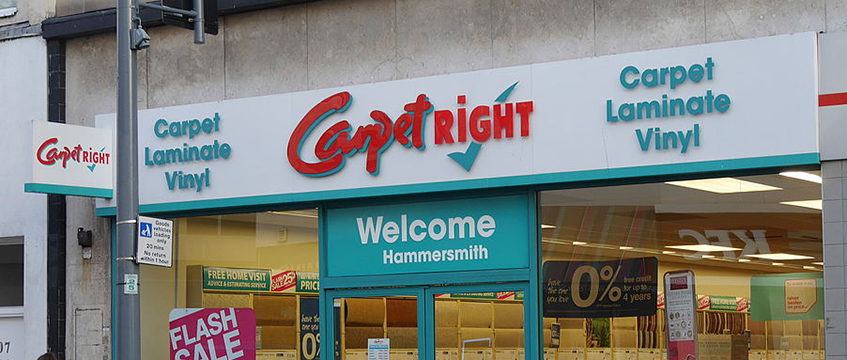Carpetright losses grow amid ‘extensive’ store closures
Carpetright has reported an £11.7m pre-tax loss in its latest half-year results, as it continues its radical store closure strategy.
The retailer closed 65 underperforming stores in the 26 weeks to 27 October.
Earlier this year, the company launched a CVA, which allowed it to close 81 stores. Of these, it has shuttered 54 category C stores.
Carpetright has reported an £11.7m pre-tax loss in its latest half-year results, as it continues its radical store closure strategy.
The retailer closed 65 underperforming stores in the 26 weeks to 27 October.
Earlier this year, the company launched a CVA, which allowed it to close 81 stores. Of these, it has shuttered 54 category C stores.
A further two stores are expected to close in the second half of the year. Twenty-five stores are anticipated to continue to trade on nil rent.
Chief executive Wilf Walsh said these landlords have allowed the stores to continue to pay the business rates, while avoiding empty units in their portfolios. These stores remain under a 60-day notice period.
Walsh said a further 11 category B stores had closed where the landlord had exercised an option to take back the lease, with a further nine closures expected in the second half.
The average store lease length at Carpetright has been reduced to 3.5 years, with 52% having an option to break within two years.
The retailer said this will provide further flexibility to reduce store sizes and relocate.
Management said it was on track to generate £19m in annualised cost savings from the store closure strategy.
The retailer’s losses before tax widened sharply to £11.7m during the six-month period, up from £600,000 in H1 during previous year. Its underlying operating loss was £6.5m, compared with equivalent profit of £3.3m during H1 2017.
Like-for-like sales fell by 12.7% over the six months. Overall sales in the UK fell by 19% to £149.6m.
Walsh said: “The restructuring activity undertaken during the period is addressing the fundamental financial challenge facing the group – legacy property costs which had become an increasingly unsupportable burden over recent years.
“This process is necessary to resolve the significant historical UK property issues and to improve liquidity. I would like to thank shareholders, lending banks, landlords, suppliers and colleagues for the support they have given to the group during this difficult period.”
To send feedback, e-mail pui-guan.man@egi.co.uk or tweet @PuiGuanM or @estatesgazette











